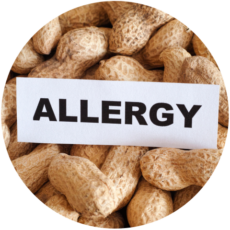
A Parent’s Guide to Vacationing with Kids Who Have Allergies or Asthma
Traveling as a family is a wonderful way to bond and make memories, but if your child has food allergies, asthma, or another allergic condition, it can bring extra stress. You’re not alone in this. These conditions can pose serious health risks if not carefully managed, especially when you’re away from home.
With thoughtful planning, your family can travel safely and still have fun!
Allergies and Asthma: Common and Serious
Did you know that according to a CDC 2021 report:
- About 18.9% of children (ages 0-17) have seasonal allergies
- Around 6.5% of children live with asthma, and
- Nearly 6% of children have food allergies
- 4% to 8% of children have insect sting allergies
If not managed carefully, many of these conditions, like asthma and food allergies, can be life-threatening and are not just minor inconveniences. For some families, rare but serious conditions like mast cell disorders or idiopathic anaphylaxis add an extra layer of concern.
If you’re a parent of a child with one of these conditions, it’s normal to feel anxious about travel. However, with the right steps in place and a little planning, you can help your child stay safe and healthy so the trip can be enjoyed without all the stress!
Travel Tips for Kids with Food Allergies or Asthma
- Tell people about your child’s allergy. They can only help if they know what your child needs.
- If you know where you’ll be eating, check out the restaurant menus ahead of time, just like you would at home.
- Provide trip organizers, airlines, hotels, and restaurants with as much notice as possible if you have any special requests. This helps them prepare.
- Pack a travel kit with all your child’s medications, including extra epinephrine auto-injectors, inhalers, spacers, and any daily medications, regardless of the distance you’re traveling.
- Bring extra copies of your child’s Food Allergy & Anaphylaxis Emergency Care Plan and Asthma Action Plan.
- If you’re traveling with others, teach them how to use an epinephrine auto-injector or inhaler and show them where the meds are kept.
- If you’re flying, carry medications in your hand luggage, not in checked bags, in case of delays or lost luggage.
- Keep quick-relief asthma meds (like a rescue inhaler) easily accessible at all times.
- Know your child’s asthma triggers (like smoke, cold air, or exercise) and try to avoid them while traveling.
- Try to stick to your child’s usual routine as much as possible, especially with medications and rest.
- Let your child’s doctor know you’re traveling. Ask if they can send a prescription if you need more auto-injectors while you’re away.
Easy Travel Tips for Teens with Food Allergies
- Speak up about your allergies. Let the airline, restaurants, and anyone else who needs to know about your allergies so they can help keep you safe.
- Bring cleaning wipes. Use them to wipe down your seat, tray table, and anything else you’ll touch.
- Look up food spots before you go. Check for allergy-friendly restaurants and grocery stores at your destination so you know where you can eat.
- Find the nearest hospital. Know the location of the closest hospital or clinic, just in case something goes wrong.
- Pack your own safe food. Take snacks or meals you know are safe for the trip and for times when you might not find anything safe to eat. If you’re going to another country, check their rules about bringing food.
- Learn a few important phrases. If you’re traveling to a place that speaks a different language, learn how to say “I’m allergic to ___.” Bring a card with it written down, too.
- Tell the people you’re with. Make sure your travel group knows about your allergies and where you keep your epinephrine.
- Bring a doctor’s note. It can help explain why you need to carry food and medicine, especially at airport security.
Great Apps for allergy-specific restaurants near you:
- Find Me Gluten Free: Crowd-sourced database of gluten–free–friendly restaurants worldwide
- HappyCow: Vegetarian and vegan restaurant finder (often good for dairy allergies)
- Spokin: Personalized recommendations based on your specific allergies
Additional Resources:
FARE (Food allergy research & education)
CDC Yellow Book: Severely Allergic Travelers







